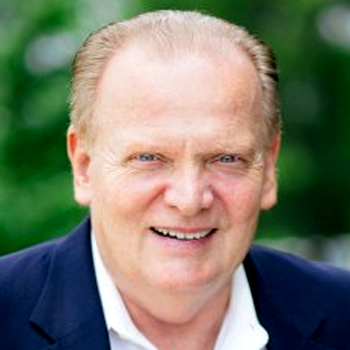Back to series



True Tolerance
—from Art Lindsley’s book True Truth: Defending Absolute Truth in a Relativistic World (IVP 2004)
A conversation between a believer and a relativist reveals a major cultural viewpoint based on a common misunderstanding of the concept of tolerance:
Click here to open a Print - Friendly PDF
Bill: I think a Christian assertion of absolute truth
leads to intolerance.
John: I certainly agree that there have been many
intolerant Christians throughout the ages and
that intolerance is wrong. But do you think
that intolerance is wrong and tolerance is
right?
Bill: Of course.
John: Don’t you realize that you’ve just made an
objective moral judgment? You’ve said something is really right and something is really
wrong. I thought you believed everything was relative?
Bill: Don’t try to trap me. I’m just saying that
Christianity is intolerant.
John: Believers in Christ have a solid foundation for
defending tolerance that relativism lacks. In
fact, I call cultural relativistic tolerance false
tolerance. Tolerance has become their only “absolute.”
Christianity is intolerant.
John: Believers in Christ have a solid foundation for
defending tolerance that relativism lacks. In
fact, I call cultural relativistic tolerance false
tolerance. Tolerance has become their only “absolute.”
Bill: Why is it false?
John: Because it provides no basis for tolerance to
be right; whereas, a believer can call tolerance
really right and intolerance really wrong.
Bill: Doesn’t tolerance lead to the idea that all
views are equal? I didn’t think you held to
that.
John: No, I don’t. But believers can argue for legal
and social tolerance without obliterating deep
differences. In fact, I think that relativistic
tolerance pretends to embrace everyone, but
it is also exclusivist in its views. It excludes
anyone that doesn’t hold to relativism and
despite its welcoming embrace, gives the fatal
hug to anyone who would object to its view.
Bill: I don’t get it. Explain what you mean.
John: Okay. Let me show you how a believer can
uphold and defend tolerance and a relativist
can’t….
 Mark is a medical student who happened to mention in class that he is a believer in Christ. Not long after, his advisor called him in. “I’m concerned, given your religious views, about whether or not you’ll be able to be a good doctor. By that I mean, whether or not you’ll be able to be tolerant of your patients’ various religious beliefs. It could affect how you function on a hospital staff with other doctors and nurses, too.”
Mark is a medical student who happened to mention in class that he is a believer in Christ. Not long after, his advisor called him in. “I’m concerned, given your religious views, about whether or not you’ll be able to be a good doctor. By that I mean, whether or not you’ll be able to be tolerant of your patients’ various religious beliefs. It could affect how you function on a hospital staff with other doctors and nurses, too.”
Ann is a graduate student in counseling at a secular institution. She has been told that she must help students work through, accept, and embrace, in the name of “tolerance,” sexual practices and lifestyles that she as a believer regards as wrong.
Michelle began to wonder why she was bringing in as much business for the law firm, and handling as many important cases, as anyone else—and still, after years, not even being considered for partner. One day, one of the secretaries confided, “I heard two of the partners talking. They were agreeing that, because you’re ‘one of those born-again Christians’ that you’re going to turn out to be too black-and-white on business issues. So they’re not comfortable offering you partnership.”
Intolerant?
Often, those who believe in objective truth are thought of as “intolerant” merely because we believe that something is good or evil, true or false.
It is time that believers regain the moral high ground on the issue of tolerance.
“Tolerance,” used in the relativist sense, has no reason for being thought of as “the right” position. In fact, in this sense tolerance is not really right and intolerance is not really wrong. In many ways, it is a “false tolerance.” It is “false” because it implicitly undermines the basis for and motive to tolerance. On the other hand, believers have many solid reasons for being defenders of tolerance, and they have a sure foundation for upholding this virtue. It is time we learned how to make, and stand for, the distinction between a “true” and a “false” tolerance.
Tolerance is a Virtue and Intolerance a Vice
In the secular version of tolerance, there are no absolutes and everything is relative. That means that tolerance is not really objectively good and intolerance is not really objectively evil. There is no basis other than personal preference to uphold tolerance and condemn intolerance. In some quarters, tolerance seems to be the only “absolute” but, of course, there are no absolute values or virtues, not even tolerance.
On the other hand, “true” tolerance is the kind that can and ought to be defended by believers because we have good reasons for maintaining that rightly defined tolerance is a virtue and rightly defined intolerance is a vice. For believers, there is an adequate basis to sustain this virtue and to teach it to their children.
Legal Tolerance
We as believers have a good basis for being defenders of religious liberty and the First Amendment.
First, many of the initial settlers in this country left England because their religious liberty was being threatened. You could call religious liberty and tolerance America’s “first freedom.”
Second, we do not believe that you can or ought to physically coerce someone into religious belief, such as occurred during the Inquisition or during the persecution of the Scottish Covenanters. We can defend people’s legal rights even when we believe them to be wrong from our perspective, for Scripture defends the right to freedom of conscience (see Rom. 14:23).
 Third, we have a good reason for desiring the non-establishment of a particular religion or denomination. Generally, where religion has been established, it becomes diluted and weak; when it is allowed freedom, it thrives. Look at the dwindling established churches (with a few exceptions) in England, Scandinavia, and Europe, compared on the other hand with the vitality (despite many imperfections) of non-established Christianity in America. In the founding of this country, only about ten percent of people attended church once a week. At present, about forty percent attend church in a given week. Where there is full freedom to persuade, the best and most attractive options prevail and gain the most adherents. As in free enterprise, the best products often get the lion’s share of the market. Finally, the best way to retain our own freedoms is to be defenders of others’ freedom. Do we want justice or “just us?”1 Leslie Newbigin says,
Third, we have a good reason for desiring the non-establishment of a particular religion or denomination. Generally, where religion has been established, it becomes diluted and weak; when it is allowed freedom, it thrives. Look at the dwindling established churches (with a few exceptions) in England, Scandinavia, and Europe, compared on the other hand with the vitality (despite many imperfections) of non-established Christianity in America. In the founding of this country, only about ten percent of people attended church once a week. At present, about forty percent attend church in a given week. Where there is full freedom to persuade, the best and most attractive options prevail and gain the most adherents. As in free enterprise, the best products often get the lion’s share of the market. Finally, the best way to retain our own freedoms is to be defenders of others’ freedom. Do we want justice or “just us?”1 Leslie Newbigin says,
If we acknowledge the God of the Bible, we are committed to struggle for justice in society, justice means giving to each his due. Our problem (as seen in light of the Gospel) is that each of us overestimates what is due to him as compared with what is due to his neighbor…. If I do not acknowledge a justice which judges the justice for which I fight, I am an agent, not of justice, but of lawless tyranny.2
Social Tolerance
Believers must uphold social tolerance. Christ encourages in us a broader love, encompassing not only family, friends, and neighbors, but also even our enemies. Christ’s radical call to “love your enemies” is unique among the world religions. Christ extends the love of neighbor to the love of enemies. In Jesus’ day, there was a debate as to who was included in the definition of the neighbor. The lawyer asked the question, “Who is my neighbor?” T. W. Manson says that even the very question is revealing:
The question is unanswerable and ought not to be asked. For love does not begin by defining its objects; it discovers them.3
Jesus’ parable of the Good Samaritan perhaps had in mind the debate of that day about the neighbor, and the lawyer was asking Jesus to take a position. Some religious leaders insisted that Gentiles, heretics, or Samaritans were not neighbors. In a midrash on Ruth, it says that the death of Gentiles should not be sought:
…but if they be in any danger of death, we are not bound to deliver them; e.g. if any of them fall into the sea, you shall
not need to take them out for it is said, ‘Thou shalt not rise up against the blood of thy neighbor,’ but such a one is not your neighbor.4
In the Jewish apocryphal book Sirach we see similar advice given.
If you do a good turn, know for whom you are doing it and your good deeds will not go to waste. Do good to a devout man and you will receive reward, if not from him, then certainly from the Most High. Give to a devout man and do not go to the help of a sinner. Do good to a humble man, give nothing to a godless one. Refuse him bread; do not give him any; it might make him stronger than you are; then you would be repaid evil twice over for all the good you had done him. For the Most High detests sinners and will repay the wicked with a vengeance. Give to the good man and do not go to the help of a sinner.5
Jesus’ story of the Good Samaritan casts as an unlikely hero a class of person who was often hated because of theological and historical rivalry. To Orthodox Jews, Samaritans were more despised than Gentiles. Jesus not only made a Samaritan the hero, but He also implicitly identified himself with this one so despised. We might ask; “Who are the Samaritans today?” Who are those that we have a difficult time loving? Who are those that you feel no compassion towards? It is those people that Christ calls us to love. We are called to love across deep religious, cultural, ethnic, and racial divisions. The eventual picture shown to us in heaven is one of every tribe, tongue, people, and nation (see Rev. 5:9). Christ is such a great leader that He can command respect and love from the most diverse crowd of followers. Believers should be on the forefront of upholding a multicultural vision, embracing with love people from every culture. There is no basis for ethnocentrism here; Jesus is not Western or Eastern, and His Church knows no cultural boundaries.6
Even in the case of people that are not just different, but religiously and morally objectionable, we are to love. The Apostle Paul reaffirms Jesus’ teaching in Romans 12:14-21:
Bless those who persecute you; bless and curse not…. Never pay back evil for evil to anyone…. Never take your own revenge, but leave room for the wrath of God, for it is written, ‘Vengeance is Mine, I will repay,’ says the Lord. But if your enemy is hungry, feed him, and if he is thirsty, give him a drink; for in so doing, you will heap burning coals upon his head. Do not be overcome by evil, but overcome evil with good.
Jesus’ call to love our enemies takes us beyond a passive tolerance to a proactive love. Again, this love needs to be demonstrated across religious, ethnic, cultural, racial, and moral divides. No matter how broad the chasm, Christ’s love extends there. Love is both centripetal and centrifugal: it both attracts people towards those who love and thrusts us out to love people wherever they live
and whatever their stance.7
Not Moral Equivalence
Tolerance does not mean religious and moral equivalence. It is in the making of this distinction that “false” tolerance and “true” tolerance diverge.
Some cultural forms of tolerance level the differences between views and minimize the divisions between them. If your religion is merely true for you and my religion true for me, then what we believe is merely a matter of arbitrary personal preference. Truth is not at issue here. Some fear that a rigorous debate about truth will lead to violence. This has, in fact, been the case at times.
Is it possible, though, to conduct a debate in a vigorous but civil manner? Of course. Chesterton once said, “The problem with a quarrel is that it spoils a good argument.” The issue of truth has become inconvenient and potentially dangerous, and so it has been shoved aside or defined away by saying it is true that there are no truths. Consider the following illustration.
Teacher: Welcome students. Since this is the first day of class, I want to lay down some ground
rules. First, since no one has the truth, you should be open-minded to the opinions of
your fellow students. Second…Elizabeth, do you have a question?
Elizabeth: Yes, I do. If nobody has the truth, isn’t that the reason for me not to listen to my fellow
students? After all, if nobody has the truth, why should I waste my time listening to
other people and their opinions? What would be the point? Only if somebody has
the truth does it make sense to be openminded. Don’t you agree?
Teacher: No, I don’t. Are you claiming to know the truth? Isn’t that a bit arrogant and dogmatic?
Elizabeth: Not at all. Rather, I think it is dogmatic as well as arrogant to assert that there is not
one person on earth that knows the truth. After all, have you met every person in the
world and quizzed him or her exhaustively? If not, how can you make such a claim?
Also, I believe it is actually the opposite of arrogance to say that I will alter my opinions
to fit the truth whenever and wherever I find it. And, I happen to think that I have
good reason to believe I do know the truth and would like to share it with you. Why
won’t you listen to me? Why would you automatically discredit my opinion before it is
even uttered? I thought we were supposed to listen to everyone’s opinions.
Teacher: This should prove to be an interesting semester.
Another student: (blurts out) Ain’t that the truth. (The students laugh.)8
As this dialogue suggests, holding to eternal truth does not necessarily make you arrogant. In fact, if I have carefully weighed Christ’s claims and find that the mass of evidence points to His being the way, the truth, and the life, and if I have come to acknowledge that He is the Lord, then it would be arrogance for me to reject what my Lord says and indicate otherwise. If I were to say that Christ is the way because He is my way that would be arrogant. But if I have submitted myself to His claims, then I could humbly put forward what I have discovered. This is not to say that arrogant presentations of Christ are uncommon. Only that arrogance is not necessarily encouraged and, moreover, it is positively discouraged by such a discovery. Francis Schaeffer once argued that Christianity is the easiest and the hardest of religions. It is the easiest in that all you have to do is say, “God be merciful to me a sinner” (Lk 18: 13). It is the hardest because humbling your pride is the very hardest thing to do. We have two choices: to be humble now or be humbled later. An arrogant Christian ought to be an oxymoron. Faith in Christ should be an antidote to arrogance, rather than a cause of it.
True tolerance is only needed if differences are significant. As we have seen, true tolerance presupposes deep differences between views. Tolerance is not needed if someone’s views are the same, or virtually the same, or insignificant. The kind of tolerance that minimizes differences makes tolerance unnecessary.
Tolerance as Sloth
Dorothy Sayers saw the danger of a false understanding of tolerance in her day. In “The Pantheon Papers” she has a humorous note on “St. Luke of Laodicea, Martyr” (see Rev. 3:16):
St. Lukewarm was a magistrate in the city of Laodicea under Claudius (Emp. A.D. 41-54). He was
broadminded as to offer asylum and patronage to every kind of religious cult, however unorthodox and
repulsive, saying in answer to all remonstrance: There is always some truth in everything. This liberality earned for him the surname of ‘The Tolerator’.9
Later he fell into the hands of one of the groups he tolerated and was eaten, but his flesh was so “tough and tasteless” that he was spit out.
In another essay, “The Other Six Deadly Sins,” Sayers equates Sloth and Tolerance:
The Church names the sixth Deadly Sin Acedia or Sloth. In the world it calls itself Tolerance; but in Hell it is
called Despair. It is the accomplice of the other sins and their worst punishment. It is the sin that believes in nothing, cares for nothing, seeks to know nothing, interferes with nothing, enjoys nothing, loves nothing, hates nothing, finds purpose in nothing, lives for nothing, and only remains alive because there is nothing it would die for. We have known it far too well for many years.10
 All inclusivists sooner or later become exclusivists. An inclusivist is one who wants to draw his circle so that everyone is tolerantly included. The inclusivist wants to embrace everyone yet the first group of people who are excluded by the inclusivists are the exclusivists. Inclusivists tend to accept only those who are willing to come under their umbrella or accept their terms of surrender. Appearing to give you a loving embrace, they strangle you. They give you a fatal hug. Have you ever had someone sneak up behind you, put their arms around you, pick you up, and squeeze you so that it felt like your ribs would break? Inclusivists want to do even more: you are squeezed until you die to your own individual (or corporate) assertion of truth. You are accepted only if you are assimilated. I think of the Borg on the television series “Star Trek: The New Generation” whose refrain was “We will assimilate you. Resistance is futile.” As long as you are willing to be drawn inside their circle, assimilated or absorbed into the collective, you are included. But if you choose to remain outside, asserting your individual beliefs, you are rejected.
All inclusivists sooner or later become exclusivists. An inclusivist is one who wants to draw his circle so that everyone is tolerantly included. The inclusivist wants to embrace everyone yet the first group of people who are excluded by the inclusivists are the exclusivists. Inclusivists tend to accept only those who are willing to come under their umbrella or accept their terms of surrender. Appearing to give you a loving embrace, they strangle you. They give you a fatal hug. Have you ever had someone sneak up behind you, put their arms around you, pick you up, and squeeze you so that it felt like your ribs would break? Inclusivists want to do even more: you are squeezed until you die to your own individual (or corporate) assertion of truth. You are accepted only if you are assimilated. I think of the Borg on the television series “Star Trek: The New Generation” whose refrain was “We will assimilate you. Resistance is futile.” As long as you are willing to be drawn inside their circle, assimilated or absorbed into the collective, you are included. But if you choose to remain outside, asserting your individual beliefs, you are rejected.
Os Guinness talks about an instance of Buddhists complaining that the Hindus wanted to “strangle them by the fraternal embrace.”11 False tolerance embraces but strangles any exclusive claim to truth. Another analogy might be drawn from the movie series “The Godfather.” When the Godfather kissed you, it might appear to be an act of affection to an unknowledgeable bystander; however, those who know what it means, call it the “kiss of death.”12 On the surface, inclusivism appears very loving and embracing but in reality, it kills any exclusive, individual—or corporate—claim to truth.
Relativism is Western and Ethnocentric
This demand for assimilation or absorption also applies culturally. Once I was giving a talk at a liberal seminary on Eastern religion. A staff member there accused me of being “Western and ethnocentric” because I dared to critique the Eastern religious philosophy. I cannot claim that I responded this clearly then, but I would now respond, “You know, I think that pluralism and inclusivism put forward at this seminary is actually Western and ethnocentric.”
You can effectively argue that the inclusivism held by many in this culture has clearly Western roots. Many in the Western liberal theological tradition see all religions as basically the same. How could you prove that this is the case? Even more, it seems to be the imposition of Western pluralism on other cultures’ religious views. Alister McGrath argues particularly in reference to the pluralism of John Hick, but his point can apply to others as well:
Yet is not this approach shockingly imperialist? Hicks’ implication is that it is not; it is only the educated
Western liberal academic who can understand all the religions. Their adherents may believe that they have
access to the truth; in fact, only the Western liberal academic has such privileged access, which is denied to those who belong to and practice such a religion.”13
Later, McGrath comments,
The belief that all religions are ultimately expressions of the same transcendent reality is at best illusory and at worst oppressive—illusory because it lacks any substantiating basis and oppressive because it involves the systematic imposition of the agenda of those in positions of intellectual power on the religions and those who adhere to them. The illiberal imposition of this pluralistic metanarrative on religions is ultimately a claim to mastery—both in the sense of having a Nietzschean authority and power to mold material according to one’s own will, and in the sense of being able to relativize all the religions by having access to a privileged standpoint.14
So this liberal, theological inclusivism has clearly Western roots and precedent. And its adherents are also arrogantly, imperialistically imposing their understanding of religion on all the world’s religions, whether they want it or not. It is not only Western, but ethnocentric because it does not allow the unique truth claims of different world religions to be heard and acknowledged. It does not take seriously the truth claims of world religions.
This same kind of critique could be made of postmodernism. The imposition of the postmodern metanarrative on the world religions is not only Western but ethnocentric. We can see by its philosophical roots in people like Marx, Nietzsche, Wittgenstein, Freud, Derrida, Rorty, Fish, Foucault, and others that it is Western. That it is ethnocentric, despite claiming to be “multicultural,” can be shown by its denial that any culture’s religious views can be “true truth” for us. To the Chinese, postmodernists might say, “Your views are true for you given your cultural setting and context but they have no universal applicability to us.” In other words, the Chinese cannot teach us truth where we are in error, nor can we show them errors where we have the truth. That is ethnocentric, an imposition of a Western cultural postmodern mindset that smashes any other culture’s claim to universal, eternal truth. Postmodernism is an oppressive imposition of Western ethnocentrism on the world religions. They are strangled by the “fraternal embrace” and have received the “kiss of death.” They have been given the fatal hug.
True Tolerance
We need to recover a defense of tolerance.
We have the grounds to defend the virtue of tolerance and condemn the vice of intolerance. We can defend legal tolerance and have a strong mandate for social tolerance. We can be strong defenders of tolerance without holding to religious or moral equivalence. In fact, it is only by maintaining objective moral values that advocating tolerance and opposing intolerance makes moral sense.
Footnotes:
1. I am indebted for this last thought and the previous paragraph to the work of Os Guinness.
He expressed these ideas in lectures at Cedar Point Farm, “The Williamsburg Charter,” and in his book
The American Hour: A Time of Reckoning and the Once and Future Role of Faith (New York: Free Press, 1993).
2. Leslie Newbigin, The Open Secret: Sketches for a Missionary Theology
(Grand Rapids, Mich.: Eerdmans, 1978), p. 124.
3. T. W. Manson, Sayings of Jesus (London: SCM Press, 1937), p. 261.
4. Quoted in Kenneth Bailey, Poet and Peasant and Through Peasant
Eyes: A Literary-Cultural Approach to the Parables in Luke (Grand Rapids, Mich.: Eerdmans, 1976), p. 40.
5. Sirach 12:1-7, (RSV translation) in The Apocrypha of the Old
Testament (New York: Thomas Nelson and Sons, 1957), pp. 122-123.
6. See the discussion of the multicultural nature of Christianity in John Piper’s book Let The Nations Be Glad!
The Supremacy of God in Missions, 2nd ed. (Grand Rapids, Mich.: Baker Academic, 2003)
7. Some helpful books on tolerance are: Stan Gaede, When Tolerance Is No Virtue (Downers Grove, Ill.: InterVarsity Press, 1993); Josh McDowell, The New Tolerance (Wheaton, Ill.: Tyndale House, 1998).
8. Francis Beckwith, “Liberal Tolerance” in Christian Research Journal, 22, no. 3, p. 46.
9. Dorothy L. Sayers, “The Pantheon Papers,” in The Whimsical Christian: 18 Essays (New York: Collier, 1987), p. 4.
10. Dorothy L. Sayers, “The Other Six Deadly Sins,” in The Whimsical Christian, p. 176.
11. Lectures at Cedar Point Farm. This theme is also found in Os Guinness,
The East, No Exit (Downers Grove, Ill.: InterVarsity Press, 1974), p. 50.
12. Ibid., p. 50.
13. Alister E. McGrath, A Passion for Truth: The Intellectual Coherence of
Evangelicalism (Downers Grove, Ill.: InterVarsity Press, 1996), p.219.
14. Ibid., p. 239.

Arthur W. Lindsley
Senior Fellow for Apologetics, CSLI Arthur W. Lindsley is the Vice President of Theological Initiatives at the Institute for Faith, Works, & Economics. He has served at the C.S. Lewis Institute since 1987 both as President until 1998 and currently as Senior Fellows for Apologetics. Formerly, he was director of Educational Ministries at the Ligonier Valley Study Center, and Staff Specialist with the Coalition for Christian Outreach. He is the author of C.S. Lewis's Case for Christ, True Truth, Love: The Ultimate Apologetic, and co-author with R.C. Sproul and John Gerstner of Classical Apologetics, and has written numerous articles on theology, apologetics, C.S. Lewis, and the lives and works of many other authors and teachers. Art earned his M.Div. from Pittsburgh Theological Seminary and a Ph.D. in Religious Studies from the University of Pittsburgh. COPYRIGHT: This publication is published by C.S. Lewis Institute; 8001 Braddock Road, Suite 301; Springfield, VA 22151. Portions of the publication may be reproduced for noncommercial, local church or ministry use without prior permission. Electronic copies of the PDF files may be duplicated and transmitted via e-mail for personal and church use. Articles may not be modified without prior written permission of the Institute. For questions, contact the Institute: 703.914.5602 or email us.
COPYRIGHT: This publication is published by C.S. Lewis Institute; 8001 Braddock Road, Suite 301; Springfield, VA 22151. Portions of the publication may be reproduced for noncommercial, local church or ministry use without prior permission. Electronic copies of the PDF files may be duplicated and transmitted via e-mail for personal and church use. Articles may not be modified without prior written permission of the Institute. For questions, contact the Institute: 703.914.5602 or email us.
-
Recent Podcasts
The Side B Stories – Adam Terry’s Story
by Adam Terry, Jana Harmon on April 26, 2024Adam Terry experienced an intellectual crisis of faith....Read More
-
A Welcome Change in Apologetics
by Randy Newman, Aimee Riegert on April 19, 2024
-
Questions That Matter Podcast – Samuel James and Digital Liturgies
by Samuel James, Randy Newman on April 19, 2024
-
Recent Publications
Isn’t Morality Relative?
by Christopher L. Reese on April 1, 2024It is widely accepted in the Western world...Read More
-
Do Muslims and Christians Worship the Same God?
by Andy Bannister on March 1, 2024
-
Artificial Intelligence and Its Impacts on Humanity
by John Lennox on February 13, 2024
0
All Booked
0.00
All Booked
0.00
All Booked
22140
GLOBAL EVENT: Keeping the Faith From One Generation To Another with Stuart McAllister and Cameron McAllister, 8:00PM ET
https://www.cslewisinstitute.org/?event=global-event-keeping-the-faith-from-one-generation-to-another-with-stuart-mcallister-and-cameron-mcallister-800pm-et&event_date=2024-05-17®=1
https://www.paypal.com/cgi-bin/webscr
2024-05-17

Next coming event
Days
Hours
Minutes
Seconds
GLOBAL EVENT: Keeping the Faith From One Generation To Another with Stuart McAllister and Cameron McAllister, 8:00PM ET
On May 17, 2024 at 8:00 pmSpeakers

Arthur W. Lindsley
Senior Fellow for Apologetics, CSLI
Team Members




